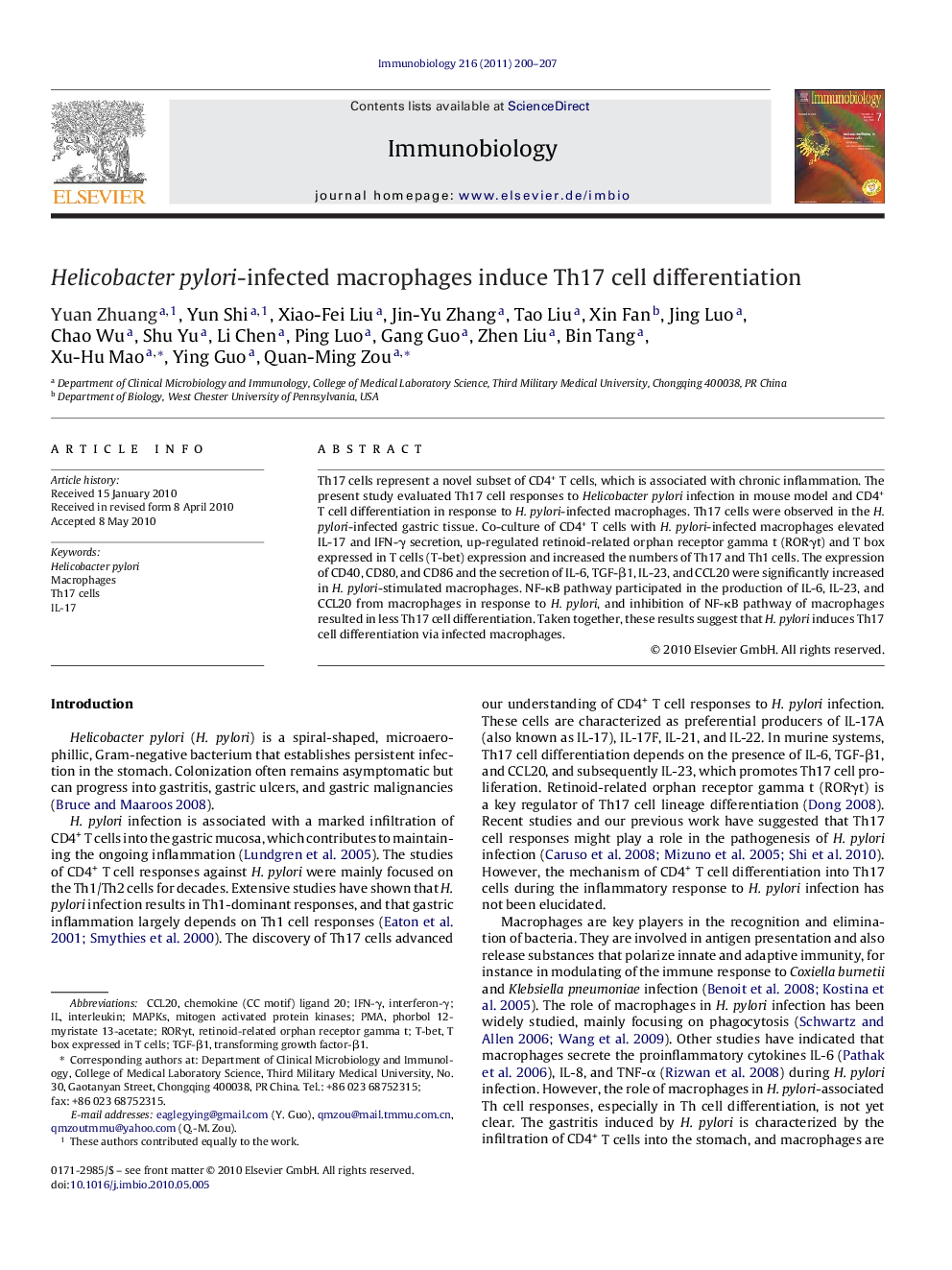| Article ID | Journal | Published Year | Pages | File Type |
|---|---|---|---|---|
| 2183562 | Immunobiology | 2011 | 8 Pages |
Th17 cells represent a novel subset of CD4+ T cells, which is associated with chronic inflammation. The present study evaluated Th17 cell responses to Helicobacter pylori infection in mouse model and CD4+ T cell differentiation in response to H. pylori-infected macrophages. Th17 cells were observed in the H. pylori-infected gastric tissue. Co-culture of CD4+ T cells with H. pylori-infected macrophages elevated IL-17 and IFN-γ secretion, up-regulated retinoid-related orphan receptor gamma t (RORγt) and T box expressed in T cells (T-bet) expression and increased the numbers of Th17 and Th1 cells. The expression of CD40, CD80, and CD86 and the secretion of IL-6, TGF-β1, IL-23, and CCL20 were significantly increased in H. pylori-stimulated macrophages. NF-κB pathway participated in the production of IL-6, IL-23, and CCL20 from macrophages in response to H. pylori, and inhibition of NF-κB pathway of macrophages resulted in less Th17 cell differentiation. Taken together, these results suggest that H. pylori induces Th17 cell differentiation via infected macrophages.
